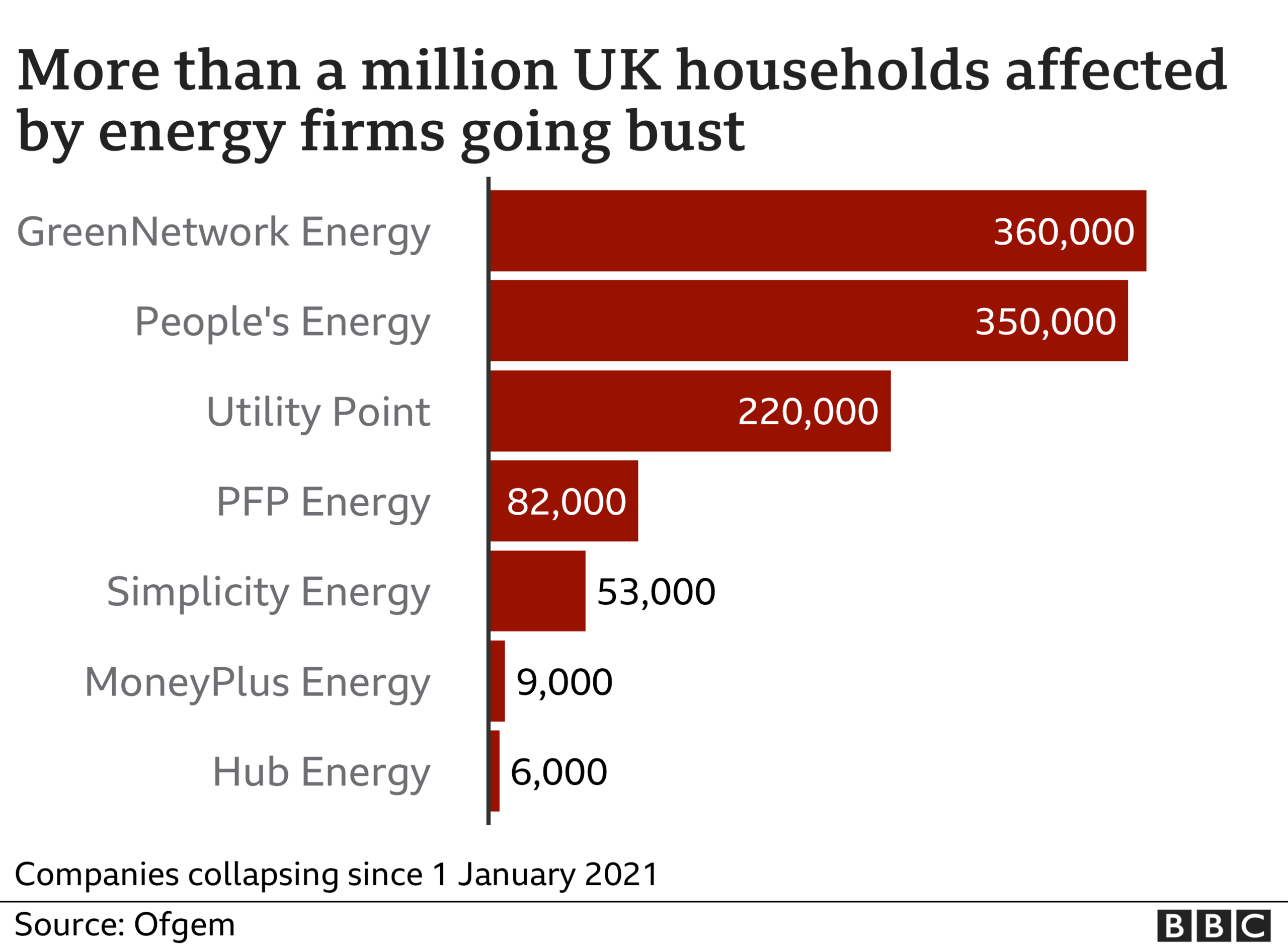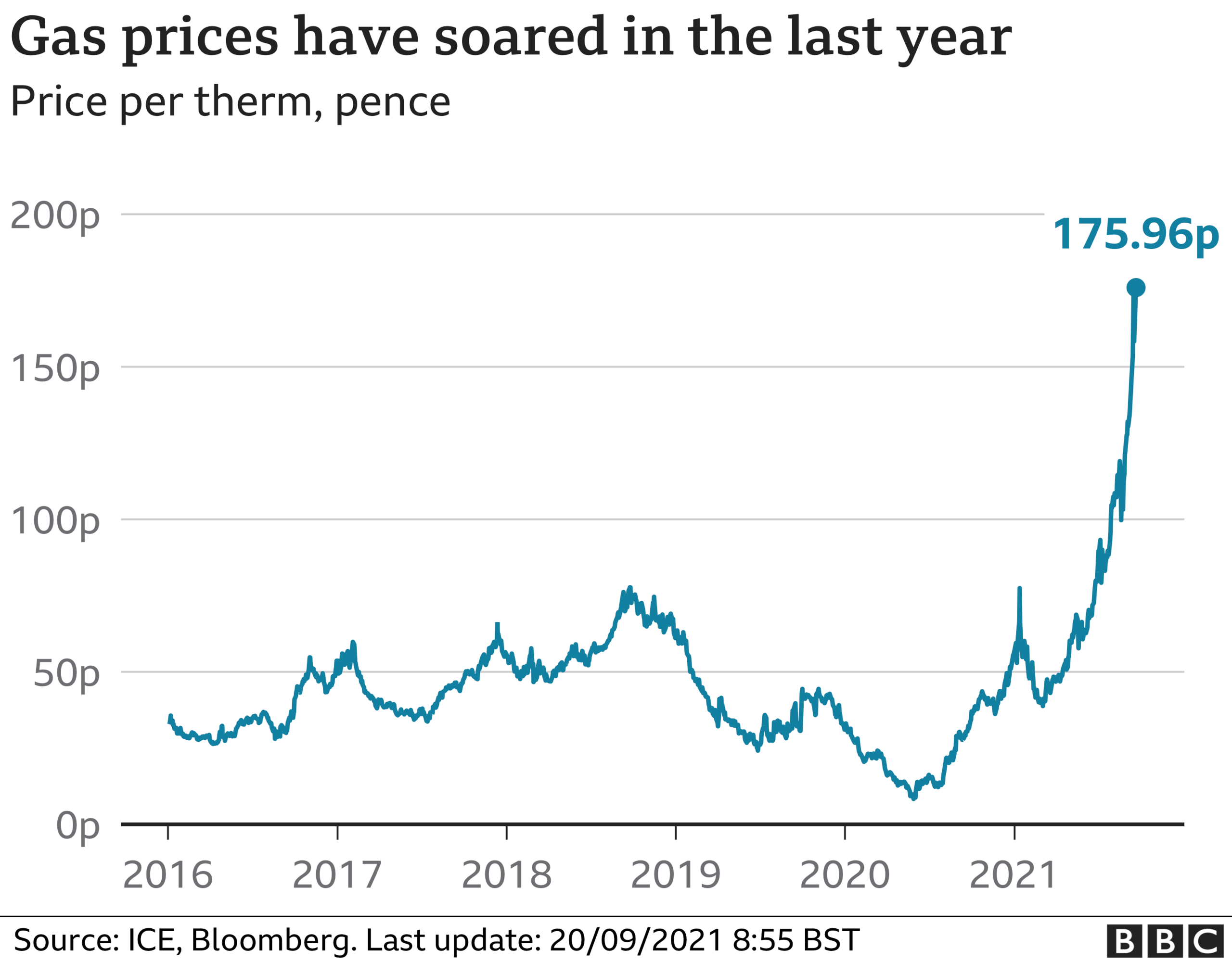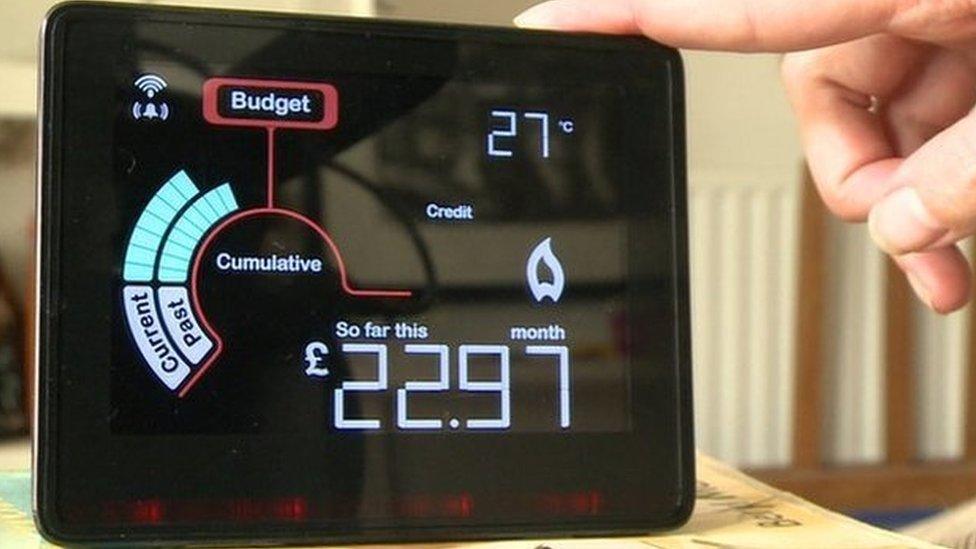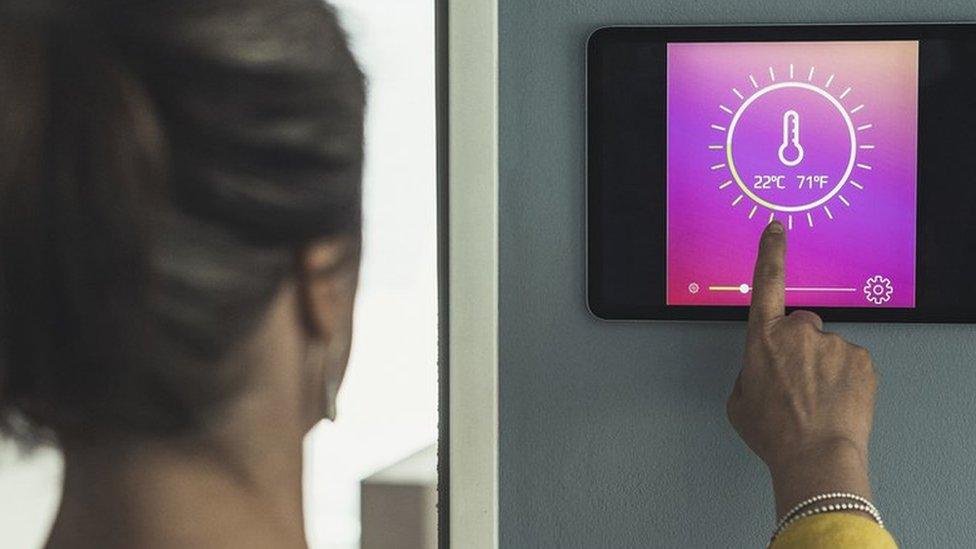Gas prices: 'I'm just watching the meter go up'
- Published

Stacey Stothard is waiting to see how much more she will have to pay
Stacey Stothard followed all the advice. Aware that energy prices were rising, she shopped around to find a decent fixed deal for her gas and electricity.
She saved £300 - or so she thought.
Her new energy supplier went bust and now she will be switched automatically to another one, and she is facing much higher bills, potentially amounting to hundreds of pounds more a year.
"It is just like watching the meter go up and up," she says. "I did the right thing - not going for the cheapest deal, but choosing a company with a decent customer service record.
"I tried to protect myself from this turbulence. Now I've just had to order a lot of logs for the burner."
She is in a position already faced by hundreds of thousands of people, and which could also be the fate of many, many more homeowners and renters.
Ms Stothard's supplier was Dorset-based Utility Point which had 220,000 customers and was among four to have ceased trading in recent weeks.

At the beginning of 2021 there were 70 energy suppliers in the UK, but industry sources have said there may be as few as 10 left by the end of the year.
In limbo
Customers, like Ms Stothard, of collapsed firms are automatically transferred to another supplier. At present, given the crisis, it is likely that they will go to one of the UK's biggest energy companies.
Their old deal is cancelled. When they are moved, the new supplier comes to an agreement with the regulator Ofgem about which tariff they will be placed on which, in all likelihood at the moment, will be more expensive. That is because the wholesale cost of gas has soared recently.

They can switch again to another supplier of their choice to find a better deal, but only after initial the transfer is complete.
Customers like Ms Stothard, who lives in Skipton, are seeing any decent deals disappear, leaving them without much of a choice. Some comparison sites have even suspended their service.
"In that time the nearest comparable deal has become significantly higher. I've been instructed that I must wait to hear from my new supplier. With each passing day, the energy prices are increasing," she says.
Can the energy companies charge me anything?
There is a backstop in place, called the energy price cap, which is set by the regulator Ofgem under government policy.
The energy cap is the maximum price suppliers in England, Wales and Scotland can charge customers on a standard - or default - tariff.

That cap will rise from its current level on 1 October.
Those on standard tariffs, who use an average amount of gas and electricity, could see an increase of £139, from £1,138 to £1,277 a year
Pre-payment customers could see an increase of £153, from £1,156 to £1,309
Even though it is rising - a move that will affect an estimated 15 million people - it does mean suppliers cannot just charge customers as much as they like as their own costs rise.
Current fixed rate deals for remaining suppliers must also be honoured.
Geoff Ravenhall, from Rugby, faces paying a tariff at the price cap level. He switched away from British Gas, only to become a customer again after his supplier went bust.
"They are ridiculous prices. As people have less and less income, it is getting more expensive," he says.
"It will be a while before another supplier is brave enough to offer a competitive rate."
Credit protection
The vast majority of households pay their gas and electricity bills by direct debit. They pay the same amount each month, irrespective of how much energy they use.
In the summer, they tend to pay for more than they use, so their credit balance builds up. Their supplier temporarily holds onto the overpayments until the winter when monthly payments tend not to cover the extra energy being used in the colder, darker months.
Customers of firms which have collapsed at the end of the summer are worried that they might lose the credit which they have built up. The same is true among customers of firms on the brink, like John who contacted the BBC.
"I am about £500 in credit, I am concerned if they go bust and I lose my £500 credit," he says.
A new supplier taking on customers of a collapsed firm will honour that credit, under Ofgem rules. The regulator, and Citizens Advice, recommend keeping evidence of statements and payments.
But that may become expensive for surviving suppliers taking on the burden of new customers, which is why the big energy companies are lobbying the government to provide financial support.

What happens if your energy supplier goes bust?

Customers will still continue to receive gas or electricity even if the energy supplier goes bust. Ofgem will move your account to a new supplier but it may take a few weeks. Your new supplier should then contact you to explain what is happening with your account
While you wait to hear from your new supplier: check your current balance and - if possible - download any bills; take a photo of your meter reading
If you pay by direct debit, there is no need to cancel it straight away, Citizens Advice says. Wait until your new account is set up before you cancel it
If you are in credit, your money is protected and you'll be paid back. If you were in debt to the old supplier, you'll still have to pay the money back to your new supplier instead
Related topics
- Published21 September 2021

